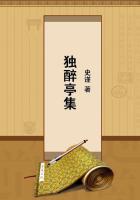Ricardo goes considerably further than Adam Smith. He bases his conception of surplus-value on a new theory of value contained in embryo in Adam Smith, but generally forgotten when it comes to applying it. This theory of value became the starting-point of all subsequent economic science. From the determination of the value of commodities by the quantity of labour embodied in them he derives the distribution, between the labourers and capitalists, of the quantity of value added by labour to the raw materials, and the division of this value into wages and profit (i.e., here surplus-value).
He shows that the value of the commodities remains the same no matter what may be the proportion of these two parts, a law which he holds has but few exceptions. He even establishes a few fundamental laws, although couched in too general terms, on the mutual relations of wages and surplus-value (taken in the form of profit) (Marx, Das Kapital , Buch I, Kap. XV, A), and shows that ground-rent is a surplus over and above profit, which under certain circumstances does not accrue.
In none of these points did Rodbertus go beyond Ricardo. He either remained wholly unfamiliar with the internal contradictions of the Ricardian theory which caused the downfall of that school, or they only misled him into raising utopian demands (his Zur Erkenntnis , etc., p. 130) instead of inducing him to find economic solutions.
But the Ricardian theory of value and surplus-value did not have to wait for Rodbertus's Zur Erkenntnis in order to be utilised for socialist purposes. On page 609 of the first volume ( Das Kapital , 2nd ed.) we find the following quotation, "The possessors of surplus-produce or capital," taken from a pamphlet entitled The Source and Remedy of the National Difficulties. A Letter to Lord John Russell , London, 1821.
In this pamphlet of 40 pages, the importance of which should have been noted if only on account of the one expression "surplus-produce or capital, " and which Marx saved from falling into oblivion, we read the following statements:
"...whatever may be due to the capitalist" (from the standpoint of the capitalist) "he can only receive the surplus-labour of the labourer; for the labourer must live " (p. 23). But how the labourer lives and hence how much the surplus-labour appropriated by the capitalist can amount to are very relative things. "... if capital does not decrease in value as it increases in amount, the capitalists will exact from the labourers the produce of every hour's labour beyond what it is possible for the labourer to subsist on the capitalist may ... eventually say to the labourer,'You shan't eat bread ... because it is possible to subsist on beet root and potatoes.' And to this point have we come!" (Pp. 2.3-24.) "Why, if the labourer can be brought to feed on potatoes instead of bread, it is indisputably true that more can be exacted from his labour; that is to say, if when he fed on bread, he was obliged to retain for the maintenance of himself and family the labour of Monday and Tuesday , he will, on potatoes, require only the half of Monday·; and the remaining half of Monday and the whole of Tuesday are available either for the service of the state or the capitalist ." (P. 26.) "It is admitted that the interest paid to the capitalists, whether in the nature of rents, interests on money, or profits of trade, is paid out of the labour of others." (P. 23.) Here we have exactly the same idea of "rent" as Rodbertus has, except that "interest " is used instead of "rent. "Marx makes the following comment (manuscript Zur Kritik , p. 852):
"This little known pamphlet -- published at a time when the "incredible cobbler" MacCulloch began to be talked about -- represents an essential advance over Ricardo. It directly designates surplus-value, or 'profit'
in the language of Ricardo (often also surplus-produce), or interest, as the author of this pamphlet calls it, as surplus-labour, the labour which the labourer performs gratuitously, which he performs in excess of that quantity of labour by which the value of his labour-power is replaced, i.e., an equivalent of his wages is produced. It was no more important to reduce value to labour than to reduce surplus-value, represented by a surplus-produce , to surplus-labour. This has already been stated by Adam Smith and forms a main factor in Ricardo's analysis .
But they did not say so nor fix it anywhere in absolute form." We read furthermore, on page 859 of the manuscript: "Moreover, the author is a prisoner of the economic categories as they have come down to him. Just as the confounding of surplus-value and profit misleads Ricardo into unpleasant contradictions, so this author fares no better by baptising surplus-value with the name of 'interest of capital.' True, he advances beyond Ricardo by having been the first to reduce all surplus-value to surplus-labour.
Furthermore, while calling surplus-value 'interest of capital,' he emphasises at the same time that by this term he means the general form of surplus-labour as distinguished from its special forms: rent, interest on money, and profit of enterprise. And yet he picks the name of one of these special forms, interest, for the general form. And this sufficed to cause his relapse into economic slang."This last passage fits Rodbertus like a glove. He, too, is a prisoner of the economic categories as they have come down to him. He, too, applies to surplus-value the name of one of its converted sub-forms, rent, and makes it quite indefinite at that. The result of these two mistakes is that he relapses into economic slang, that he does not follow up his advance over Ricardo critically, and that instead he is misled into using his unfinished theory, even before it got rid of its egg-shell, as the basis for a utopia with which, as always, he comes too late. The pamphlet appeared in 1821and anticipated completely Rodbertus's "rent" of 1842.















